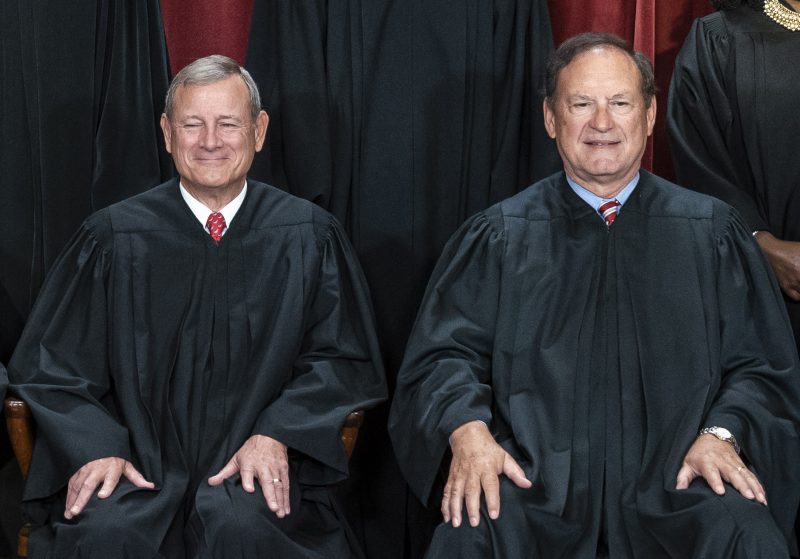In a recent development, Democratic lawmakers have intensified pressure on Chief Justice John Roberts to address the ethical concerns surrounding certain members of the Supreme Court. The push comes on the heels of heightened scrutiny over the justices’ financial holdings and potential conflicts of interest that could compromise the court’s impartiality.
One of the central issues prompting this call for action is the revelation that several Supreme Court justices have financial investments in companies that appear before the court or are involved in cases that come before the court. This conflict of interest raises serious questions about the objectivity and fairness of the court’s decisions, particularly in cases where the justices’ personal financial interests could be impacted.
Chief Justice Roberts, as the head of the Supreme Court, plays a crucial role in upholding the integrity and credibility of the judicial system. It is incumbent upon him to ensure that all members of the court adhere to the highest standards of ethics and conduct. The pressure from Democratic lawmakers reflects a growing concern that the court’s image and legitimacy could be eroded if these ethical issues are not properly addressed.
The call for Chief Justice Roberts to tackle these ethical concerns head-on is not just a matter of partisan politics; it is a fundamental issue of justice and accountability. The Supreme Court is meant to be a beacon of impartiality and integrity, where decisions are based on the law and the merits of the case, not on personal financial interests or allegiances.
In order to address these ethical challenges, Chief Justice Roberts must take decisive action to create greater transparency and accountability within the court. This could include revising the court’s financial disclosure rules to ensure that justices’ investments are fully disclosed and scrutinized for potential conflicts of interest. Additionally, the court could establish stricter recusal guidelines to prevent justices from participating in cases where they have a financial stake.
By taking proactive steps to address these ethical concerns, Chief Justice Roberts can help restore public trust in the integrity of the Supreme Court and reaffirm the court’s commitment to upholding the rule of law. The judiciary plays a vital role in our democracy, and it is essential that the highest court in the land operates with the utmost integrity and adherence to ethical standards.
Democratic lawmakers are right to press Chief Justice Roberts to address these ethical challenges and ensure that the Supreme Court remains a bastion of justice and fairness for all Americans. The integrity of our judicial system is at stake, and it is imperative that Chief Justice Roberts takes decisive action to uphold the highest ethical standards within the court.
